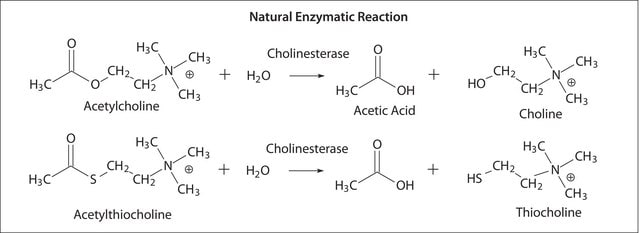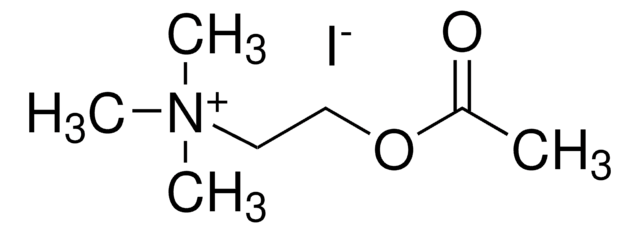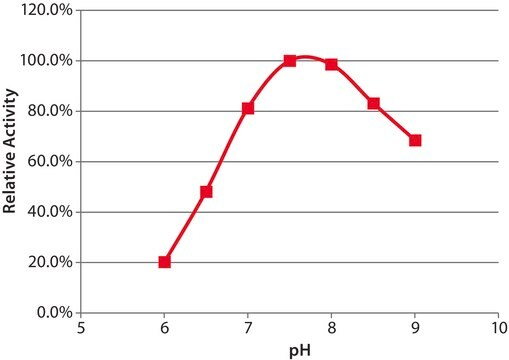C2888
Acetylcholinesterase from Electrophorus electricus (electric eel)
Type V-S, lyophilized powder, ≥1,000 units/mg protein
Synonym(s):
AChE, Acetylcholine acetylhydrolase, Cholinesterase, Acetyl
About This Item
Recommended Products
biological source
Electrophorus electricus
Quality Level
type
Type V-S
form
lyophilized powder
specific activity
≥1,000 units/mg protein
mol wt
280 kDa
composition
Protein, ≥45% biuret
pI
~5.3
solubility
Tris buffer: 1 mg/mL (0.02 M Tris buffer, pH 7.5)
storage temp.
−20°C
Looking for similar products? Visit Product Comparison Guide
General description
Isoelectric Point: 5.5
Extinction Coefficient: E1% = 18.0 (280 nm)
Acetylcholinesterase from Electrophorus electricus is a tetramer composed of 4 equal subunits of 70 kDa each. Each subunit contains one active site. The enzyme is a glycoprotein containing hexosamines.
Application
- in acetylcholinesterase activity assay
- to study its effects on Xenopus embryonic hippocampal cells
- to study the effect of acetylcholine inhibitors on development and plasticity
Biochem/physiol Actions
Caution
Unit Definition
Physical form
Analysis Note
Storage Class
11 - Combustible Solids
wgk_germany
WGK 3
flash_point_f
Not applicable
flash_point_c
Not applicable
ppe
Eyeshields, Gloves, type N95 (US)
Certificates of Analysis (COA)
Search for Certificates of Analysis (COA) by entering the products Lot/Batch Number. Lot and Batch Numbers can be found on a product’s label following the words ‘Lot’ or ‘Batch’.
Already Own This Product?
Find documentation for the products that you have recently purchased in the Document Library.
Customers Also Viewed
Our team of scientists has experience in all areas of research including Life Science, Material Science, Chemical Synthesis, Chromatography, Analytical and many others.
Contact Technical Service








